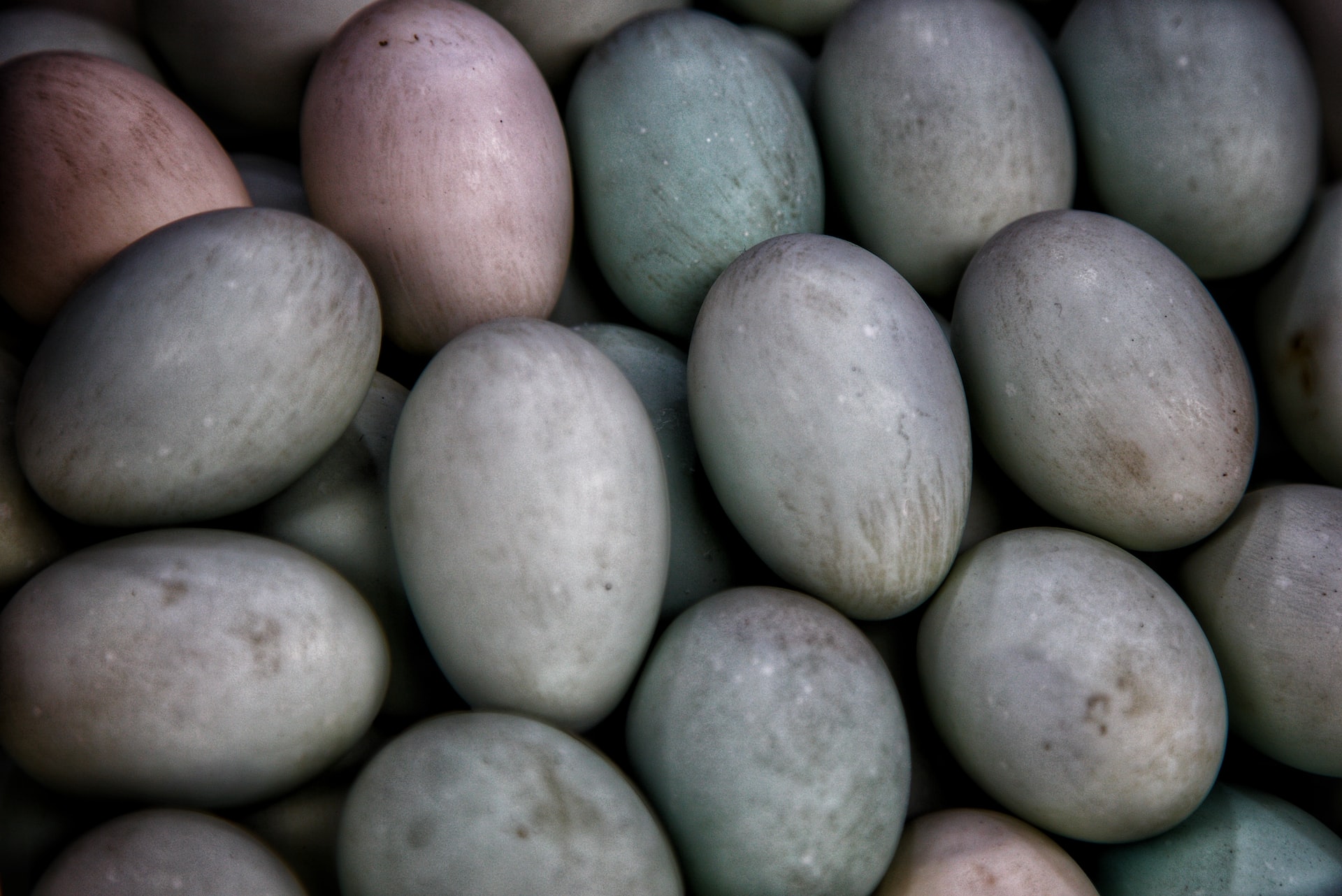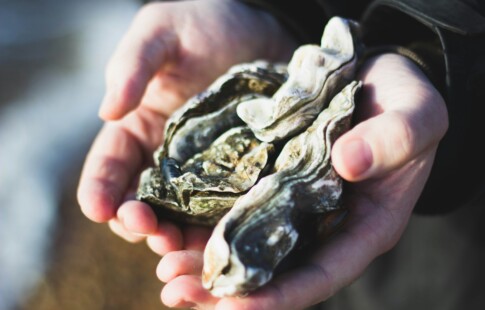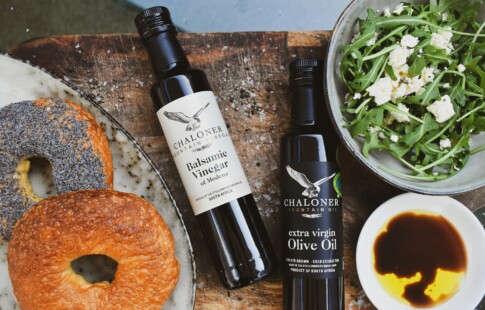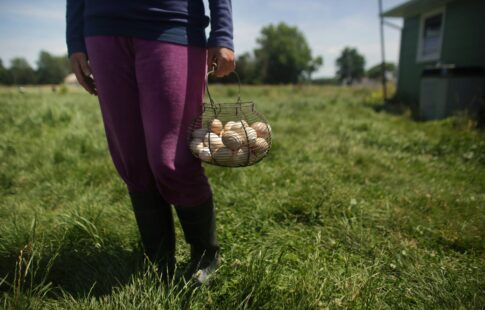
How to Cook Duck Eggs: 5 Ideas
We are reader-supported. When you buy through links on our site, we may earn affiliate commission.
When you picture breakfast, odds are you think of hot, sizzling eggs. But which bird comes to mind when you think of who laid the eggs: a chicken or a duck? A versatile food packed with protein, duck eggs are the preferred option in many countries. When it comes to cooking them, there are a few slight differences, but the process is the same overall. Here’s how to cook duck eggs.
The Difference Between Duck and Chicken Eggs
What makes duck eggs stand out?
- Size: Duck eggs are the larger of the two. An average duck egg weighs around 70 grams, while even an extra-large chicken egg clocks in at just over 60 grams.
- Flavor: Duck eggs have a richer taste.
- Shell hardness: Developing duck embryos have a little extra protection thanks to a much thicker, harder shell. Don’t worry — it’s still easy to crack.
- Consistency: The yolk in a duck egg is creamier, and the egg white is slightly firmer. Duck eggs are said to give cakes and pastries a moist, fluffy texture and impart a silky smoothness to custards.
- Nutrition: Because they’re larger than chicken eggs, duck eggs have more calories. They also have higher levels of fat, protein and cholesterol.
A duck’s egg production depends on its breed, with some laying over 300 eggs per year. This is on par with high-producing chicken breeds.
How to Cook Duck Eggs
The main thing you need to know about cooking duck eggs is that because they’re larger, they take slightly longer to cook than chicken eggs. However, be sure to avoid overcooking them. You might get away with keeping chicken eggs on the stove a little too long, but duck egg whites will turn rubbery and unpleasant quickly.
If a recipe calls for three chicken eggs, you can generally substitute two duck eggs. That’s because most recipes are standardized to call for a large chicken egg, which the USDA determines as an egg weighing between 56.8-63.7 grams. Remember the rule of thumb that large chicken eggs are roughly 60 grams, while duck eggs hover around 70 grams. Use a kitchen scale for the most accurate substitutions when baking.
Duck Egg Dishes
Hungry? Most people eat eggs in the morning because that’s when domestic birds usually lay them, but there are egg dishes for every meal of the day. Here are some ideas to get you started.
- Tea Eggs
This Chinese snack is a savory twist on the classic hardboiled egg. After boiling some duck eggs, crack the shells slightly and marinate the eggs in a separate pot of simmering black tea, soy sauce and spices for around 20 minutes.
Then, transfer the egg-and-tea mixture into a glass container. Let it steep for several hours in the fridge before peeling and enjoying the eggs.
- Duck Egg Omelet
Duck eggs make for a rich, creamy omelet. Beat a duck egg with salt, pepper and herbs in a small bowl. After adding olive oil to a frying pan, pour the mixture into the pan. Cook it by gently pushing the edges toward the center until it forms an omelet.
Add fillings such as mushrooms, diced tomatoes, shredded cheese, avocado or basil. The beauty of an omelet is that you can stuff it with pretty much anything. Fold it over, let it finish cooking and dig in!
- Duck Egg Custard
To make this delicious treat, start by preheating the oven to 300 degrees Fahrenheit. Boil six cups of water. Remove the water from the heat, then leave it in the pot with a lid on it.
Coat six 7-ounce ramekins, which are small bowls, with cooking spray and set them in a baking dish.
Whisk two duck eggs, one extra duck egg yolk, 1/3 cup of sugar and a teaspoon of vanilla in a bowl. Add two cups of milk to a saucepan, simmering it on medium-low heat. Turn off the stove and pour the egg mixture into the milk, whisking as you go.
Pour half a cup of the liquid into each ramekin. Add a dash of powdered vanilla and nutmeg on top. Then, pour an inch of hot water into the baking dish. The ramekins should be half submerged in the water bath.
Bake the custard for 35 minutes or until it’s set. Remove it from the oven and let the ramekins stay in the water until they cool down. Enjoy!
- Smoked Eggs
Similar to hardboiled eggs, smoked eggs are cooked in the shell, but on a smoker instead of a stove. Start by grilling the eggs in the smoker for half an hour. Alternatively, you can hard boil them on the stove. Next, dunk them in ice water to make them easier to peel. Remove the shells. Add the eggs and wood to the smoker, then smoke them on low heat for 30 minutes to an hour.
Enjoy the smoked duck eggs on their own, or add them to a dish like egg pâté or egg salad.
- Sunny-Side-Up Duck Eggs
Coat a frying pan with butter and set it to medium-low heat. Crack an egg into the pan, and when it starts to bubble, turn the heat down low. When the egg white is no longer clear and the yolk is still slightly runny, remove it from the pan and serve.
Does Egg Color Matter for Cooking Purposes?
Duck eggs vary in color. They can be white, green, blue or even gray depending on the breed and time in the bird’s laying cycle. Famously, Cayuga ducks lay black eggs at the start of their laying cycle, which lighten to white by the end of the season.
Eggshell hue has no effect on taste. As with chicken eggs, the color is simply a pigment deposited on the shell right before laying, and the egg yolks are all the same inside.
Why Are Duck Eggs Less Common Than Chicken Eggs?
In some global regions, such as Asia, people have a preference for duck eggs. But you probably don’t meet backyard duck keepers as often as you encounter DIY homesteaders raising chickens. Why?
For one thing, ducks can fly — very well. You’ve likely seen a flock of ducks migrating in that classic V shape overhead. Chickens can fly somewhat, too, with the exception of the silkie breed, but they can’t simply take off and soar across town like ducks can. This makes keeping ducks a little tricker.
Ducks are also notoriously loud and tend to smell worse than chickens. The males are aggressive, and if a farmer keeps a mixed flock of both species, male ducks may attempt to mate with female chickens. But this often kills the hen due to major anatomical incompatibilities.
Lastly, waterfowl prefer having a place to swim, such as a lake or pond. But most people don’t own a large body of water, so they have to use a small pool instead. This can be a breeding ground for mosquitos if it isn’t cleaned consistently. That’s one additional chore that makes keeping ducks harder.
Therefore, fewer people keep ducks because chickens are easier, so their eggs are simply less common. That’s why they tend to cost more. Some consumers will also pay more for novelty foods, so farmers can price their duck eggs higher.
Enjoying Duck Eggs
In summary, cooking duck eggs is basically the same as cooking chicken eggs. Though duck eggs are creamier, richer and have a better nutritional profile, they’re just as easy to prepare as any other egg dish.
Share on
Like what you read? Join other Environment.co readers!
Get the latest updates on our planet by subscribing to the Environment.co newsletter!
About the author
Grace Waters
Always inspired by the natural world around her, Grace grew up exploring tide pools and hiking mountain trails, developing a deep appreciation for biodiversity and conservation. Now, Grace works as the Senior Editor of Environment.co where she covers topics related to emerging clean technologies, zero-waste initiatives, and the intersection of environmental policy and everyday living.





